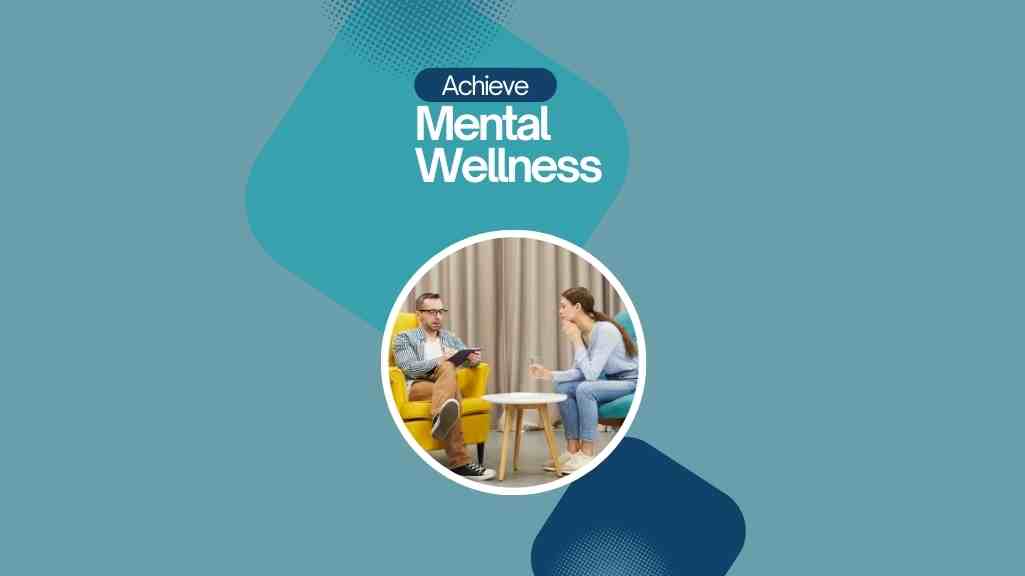Introduction
Mental health is an important factor in overall well-being, influencing our thoughts, emotions, and actions in everyday life. In this era of growing stress, anxiety and depression finding effective ways of bettering mental health naturally is paramount. Focusing on natural methods offers long-lasting benefits that take into account the person as a whole not only the limited effects seen with the use of drugs. This article discusses why mental health is critical, main aspects involved and provides practical suggestions on how to improve it naturally.
Table of Contents
Issues or Aspects at Stake
1. Stress and Anxiety
Stress and anxiety are popular mental health problems that can be attributed to various sources such as job demands, personal relationships and financial constraints. Chronic stress leads to an anxiety disorder, thus causing impairment in daily living as well as reducing the quality of life.
2. Depression
Depression is a severe mental illness characterized by constant feelings of sadness, hopelessness and loss of interest in pleasurable activities. It affects millions across the globe and can result to fatal consequences if not managed properly.

3. Sleep Disorders
Sleeping is necessary for one’s mental well-being; however, insomnia among others deteriorates psychiatric illness which results into poor sleep hence vicious cycle occurs when poor sleep worsens mental illnesses leading to decreased good sleep.
4. Lifestyle Factors
What people eat and engage themselves in physical exercises plus how they associate with others has a significant influence on their psychological welfare too. Unhealthy choices are among factors contributing to mental disorders while healthy practices enhance better mental wellness.
The Impact or Importance
Societal Impact
Mental health issues have profound effects on society resulting into reduced productivity levels increased medical care expenses along with higher social services burdening. By promoting good psychological wellbeing, we will achieve more productive happier healthier societies.
Health Impact
General wellbeing relies heavily on sound mind both physically and mentally because some mental conditions are associated with physical illness such as cardiovascular ailments, diabetes and weak immune systems. So, tackling mental health problems can improve one’s physical health.
Industry Impact
Within the workspace, employee mental wellbeing issues are related to absenteeism reduced output as well as increased staff turnover rates. This optimally leads to a more involved and efficient group of employees for organizations that prioritize mental health.
Strategies or Solutions
1. Regular Physical Exercise
Physical activity is known to be one of the most effective natural ways of improving mental health. Routine exercise releases endorphins, which are the body’s own mood elevators; it also lowers cortisol levels in the blood system, a stress hormone. Various activities like walking, jogging, yoga, strength training can greatly enhance our state of mind.
Case Study: It has been determined that even exercising for just one hour per week can help prevent depression according to a study published in the American Journal of Psychiatry.

2. Mindfulness and Meditation
Mindfulness and meditation practices promote relaxation thereby reducing stress and anxiety while enhancing present moment awareness. These strategies may help one deal with negative thinking patterns and regulate their emotions better.
Case Study: The research from JAMA Internal Medicine shows that mindfulness meditation programs can alleviate symptoms of anxiety, depression, and pain.
3. Healthy Diet
A nutritious diet consisting mainly of fruits, vegetables whole grains as well as lean proteins supports good psychological condition. Nutrients including omega-3 fatty acids antioxidants vitamins are crucial in brain performance which affect moods together with cognitive functions.
Case Study: A study published in the Journal of Epidemiology & Community Health suggests that a diet high in fruits and vegetables is associated with lower rates of depression and anxiety.
4. Get Enough Sleep
Adequate sleep is necessary for mental well-being. Creating a restful atmosphere, developing regular sleep habits, and avoiding stimulants like coffee before going to bed may facilitate good sleep.
Case Study: The National Sleep Foundation reports that individuals who get adequate sleep are less likely to suffer from severe psychological distress.
5. Be Socially Connected
Strong social networks can provide emotional support and foster a sense of belongingness, which are crucial for mental health. Participating in social events, maintaining friendships as well as seeking help from friends and family members can relieve one from loneliness and depressed feelings.
Case Study: A study in the Journal of Health and Social Behavior found that social support can act as a buffer against the impact of stress and mental health disorders.
6. Spend Time Outdoors
Time spent outside and surrounded by nature has been shown to lower tension, improve mood, and enhance overall mental health. Hiking or gardening or even just walking around in the park have healing impacts.
Case Study: Research published in Environmental Health Perspectives found that exposure to green spaces can significantly reduce the risk of psychiatric disorders.
7. Less Alcohol and Drug-Free Life
Substance abuse worsens existing conditions. Minimizing alcohol intake while refraining totally from drugs can help prevent mental instability while keeping good health altogether.
Case Study: The National Institute on Drug Abuse highlights that reducing substance abuse can lead to better mental health outcomes and lower the risk of developing mental health disorders.
Real Life Examples/Cases Studies:
Case Study 1: Exercise and Depression
John was a 45-year-old advertising executive who had been battling depression for years until he started incorporating running exercises into his morning routine as well as weight training three times per week. In a few months he claimed that he felt better, both mentally and emotionally. This case brings out the potential of physical activity in alleviating symptoms of depression.
Case Study 2: Meditation and Anxiety
Sarah, a 30-year-old school teacher, was constantly anxious, making it difficult for her to function effectively at her job or have a personal life. She began practicing mindfulness meditation each day for twenty minutes. Over time she noticed her anxiety reducing as well as an ability to handle stress better. Her experience demonstrates the effectiveness of meditation in reducing anxiety.
Case Study 3: Diet and Mood
Emily – 25-year-old student had been experiencing mood swings along with low energy levels. She decided to shift to consuming omega-3 fatty acids, antioxidants, and complex carbohydrates after seeking advice from a dietitian. Following this change in her nutrition, Emily noticed improvements in her mood stability and increased energy level; thus, demonstrating the interlink between mental health and diet.
Conclusion
It is possible as well as advantageous to improve mental health naturally. Mental well-being therefore can be significantly improved by integrating exercise, mindfulness practices, healthy eating habits, enough sleep, and strong social connections into daily lives. Real-life examples alongside case studies prove that these strategies work leading to substantial improvement on mental health through natural means. Paying attention to these methods will make society healthier and happier hence minimizing the prevalence of mental illness.
Main Takeaways:
Exercise Regularly: Include physical activities that boost your spirits while helping you cope with stress efficiently.
Practice Mindfulness: Utilize meditation to manage anxiety and enhance your emotional well-being.
Eat Healthily: A balanced diet is good for brain function, and can also have a positive effect on your mood.
Ensure Adequate Sleep: Good sleep is essential for mental health.
Maintain Social Connections: Building strong relationships with others gives emotional support and reduces loneliness.
Spend Time in Nature: Outdoor activities are good for mental health.
Avoid Substance Abuse: Having less alcohol and staying off drugs can help you avoid mental problems of ill health.
By following these natural strategies, individuals can take proactive steps towards improving their mental health and leading a more fulfilling
FAQs on Natural Ways to Improve Mental Health
1. How can you improve your mental health through regular exercise?
Endorphins, are mood boosting natural chemicals, which are lessened by exercise, thus improving the mental health of an individual. The stress hormone cortisol is reduced by it leading to a reduction in anxiety and depression; walking, jogging, yoga and strength training among others can really help one’s mind.
2. What are some effective mindfulness and meditation practices for reducing stress?
Different ways of mindfulness and meditation that help in reducing our stresses include focused breathing exercises, progressive muscle relaxation as well as guided imagery all aimed at making us relax more and become aware of the present moment. These techniques help with negative thoughts control and emotional self-regulation.
3. How does diet impact mental health?
A balanced diet full of fruits, vegetables, whole grains along with lean proteins support the brain with essential nutrients such as omega 3 fatty acids; antioxidants and vitamins that have a great impact on mood changes or emotional responses within the body. Also avoiding processed foods or sugary snacks can prevent swings in moods and fatigue also.
4. Why is adequate sleep important for mental health?
Mental health needs enough sleep it allows for brain restorative periods where healing occurs from their problems especially poor sleep worsens anxiety or depression. Developing a pattern of regular sleeping hours within peaceful surroundings plus staying away from stimulants like coffee before bed helps improve the quality of sleep thus overall mental wellbeing.
5.How do social connections influence mental health?
Strong social connections provide emotional support, foster a sense of belongingness and reduce loneliness as well as depression. By engaging in social activities, maintaining relationships or turning friends to family members when there is need for support individuals may overcome stress leading to positive outlooks on life thereby caring about their own happiness too much.

